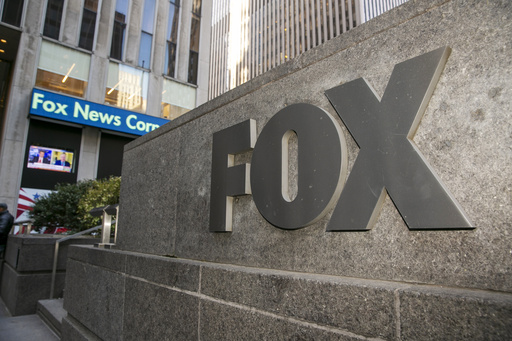WILMINGTON, Del. — Legal representatives for Fox Corporation have requested a Delaware judge to dismiss a shareholder lawsuit that seeks to hold both current and former company leaders accountable for the financial repercussions resulting from Fox News’ reporting on alleged voting irregularities during the 2020 election.
The lawsuit has been brought by five public employee pension funds from New York City, together with Oregon’s public employee retirement fund. The plaintiffs contend that Rupert Murdoch, the former chairman, and other executives at Fox Corporation chose to overlook significant liability risks by promoting false claims involving voting technology firms, Dominion Voting Systems and Smartmatic USA.
Smartmatic has filed a defamation lawsuit against Fox News in New York, seeking $2.7 billion in damages. This comes shortly after the company settled a similar lawsuit against One America News Network in the District of Columbia concerning vote fraud claims.
Dominion, on the other hand, has initiated multiple defamation actions against those propagating conspiracy theories about its election machinery being responsible for Donald Trump’s defeat in 2020. In the preceding year, Fox News settled a defamation lawsuit initiated by Dominion in Delaware for a substantial sum of $787 million.
In addition, the shareholder plaintiffs claim that the leaders at Fox ignored evident warning signs regarding the liabilities linked to a report from 2017, which implicated Seth Rich, a Democratic National Committee staff member, in leaking party emails to Wikileaks during the 2016 presidential election. Rich, who was just 27 at the time, was fatally shot in Washington, D.C., in what was determined to be an attempted robbery.
Fox News retracted the story about Seth Rich just one week after it aired. However, Rich’s parents subsequently sued the network for mischaracterizing their son as a criminal and traitor. This lawsuit was settled in 2020 for “millions of dollars,” right before program hosts Lou Dobbs and Sean Hannity were scheduled to give depositions, as cited in the shareholder lawsuit.
Joel Friedlander, representing the institutional shareholders, argued that Fox’s executives failed to take action until the reporting on Rich escalated into a significant national controversy. The shareholders claim that Rupert Murdoch, accompanied by his son and CEO, Lachlan Murdoch, permitted Fox News to continue disseminating inaccurate narratives about the election despite internal communications indicating a lack of evidence for such conspiracy theories.
Friedlander stated, “The Murdochs had the chance to lessen future financial risk, but chose not to.” He further claimed they engaged in “bad-faith decision making” with the other defendants in a profit-focused attempt to maintain viewer ratings and favorable relations with Trump.
Defense attorneys have argued for dismissal of the case, highlighting that the plaintiffs did not first request the Fox Corporation board to take action, a step mandated by Delaware law. They also asserted that the plaintiffs did not successfully establish that a pre-suit request would have been futile due to the substantial likelihood of liability for at least half of the board members.
In addition to the “demand futility” issue, defense attorneys contended that the allegations against Fox officials regarding breach of fiduciary duties do not satisfy Delaware’s pleading standards and should therefore be dismissed.
Defense attorney William Savitt pointed out that the settlement regarding Seth Rich was deemed “immaterial” and that the allegedly defamatory remarks concerning Dominion and Smartmatic did not serve as warning signs for the directors, which would indicate a need for concern about potential defamation liability.
Savitt emphasized that the article about Rich was quickly retracted, and the settlement included no admission of wrongdoing. He indicated that the statements about Dominion and Smartmatic led directly to the current liabilities and thus cannot be taken as preventive warnings regarding future legal risks.
According to the defense, a “red flag” should serve as a caution regarding a prospective liability-causing event, allowing directors to take preventive action, rather than an indication that an event that could lead to liability had already occurred.
Defense lawyers further noted that there were no factual claims supporting the idea that Fox officials tolerated illegal actions for profit or that they willfully neglected their oversight duties, asserting that the occurrence of a negative outcome is insufficient to prove “bad faith.”
The final ruling by Vice Chancellor J. Travis Laster is anticipated within the next 90 days.



